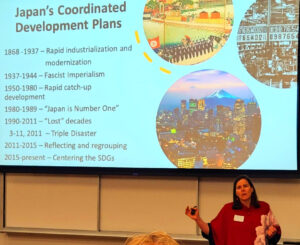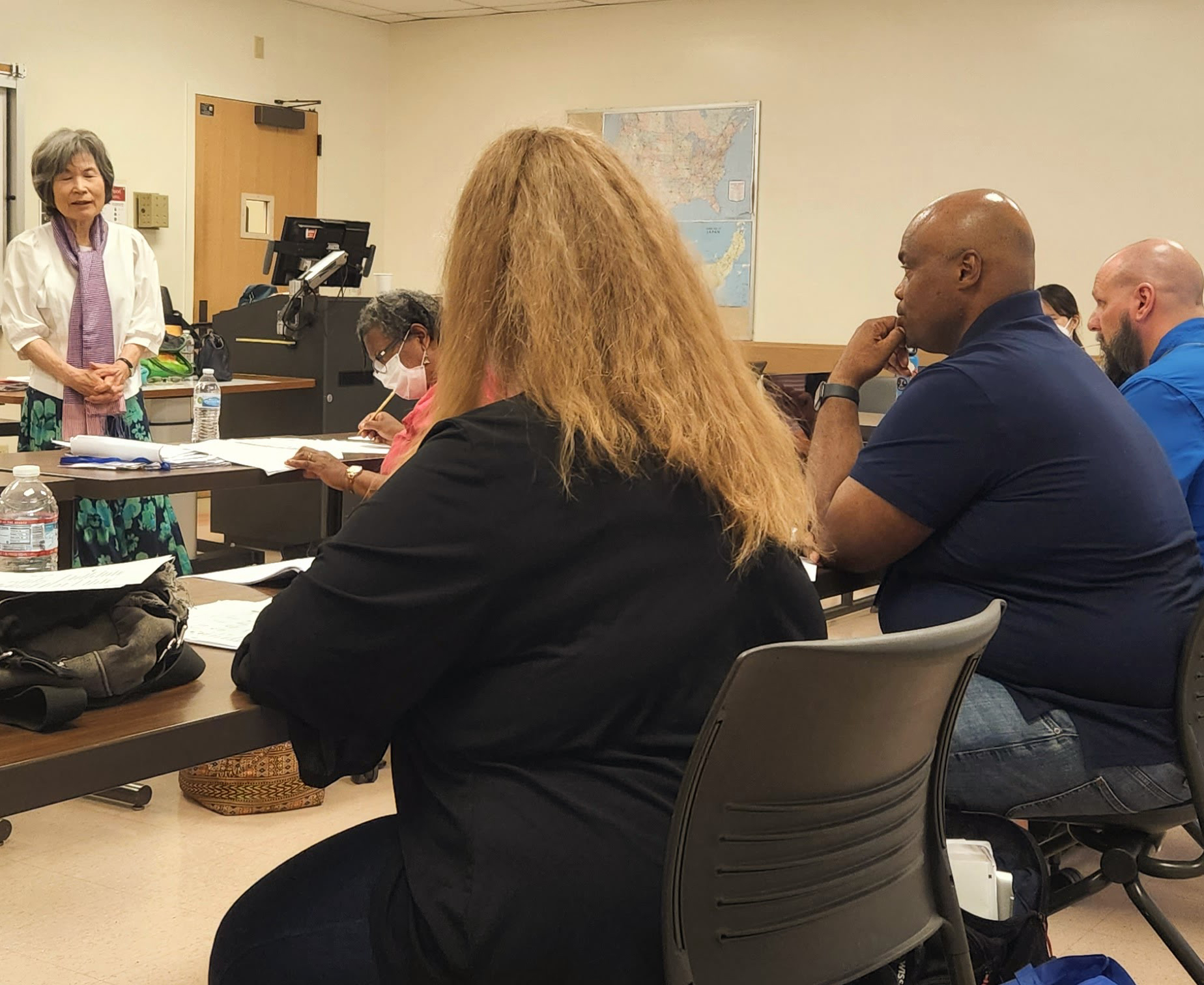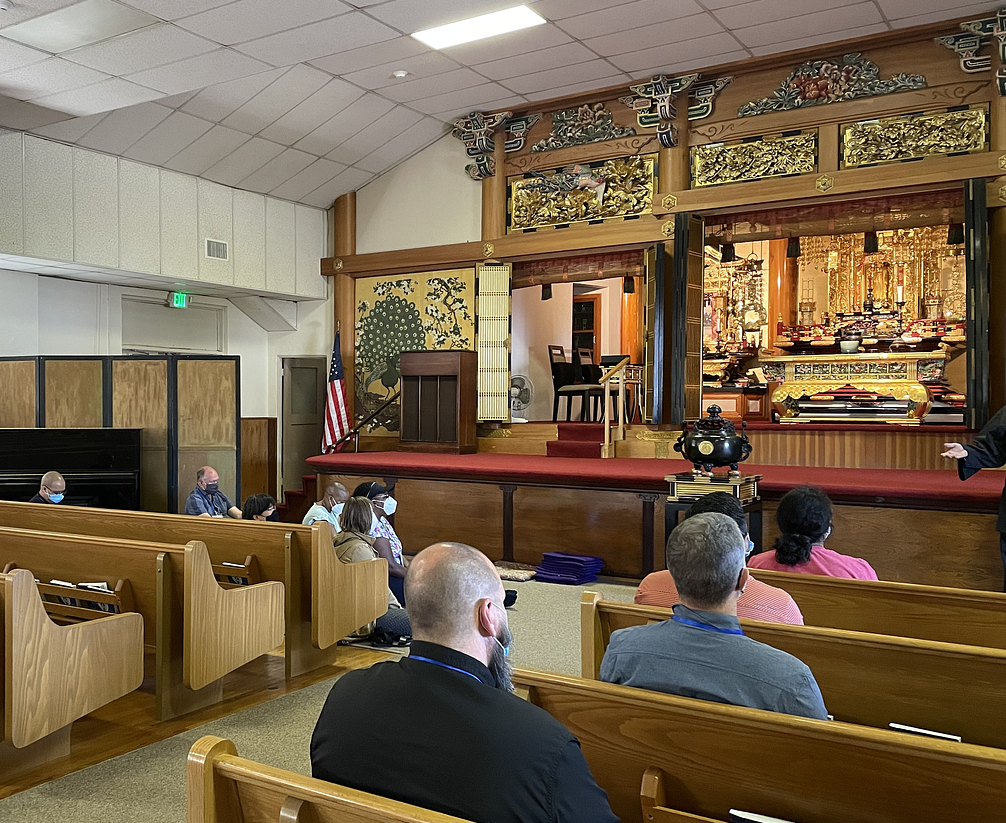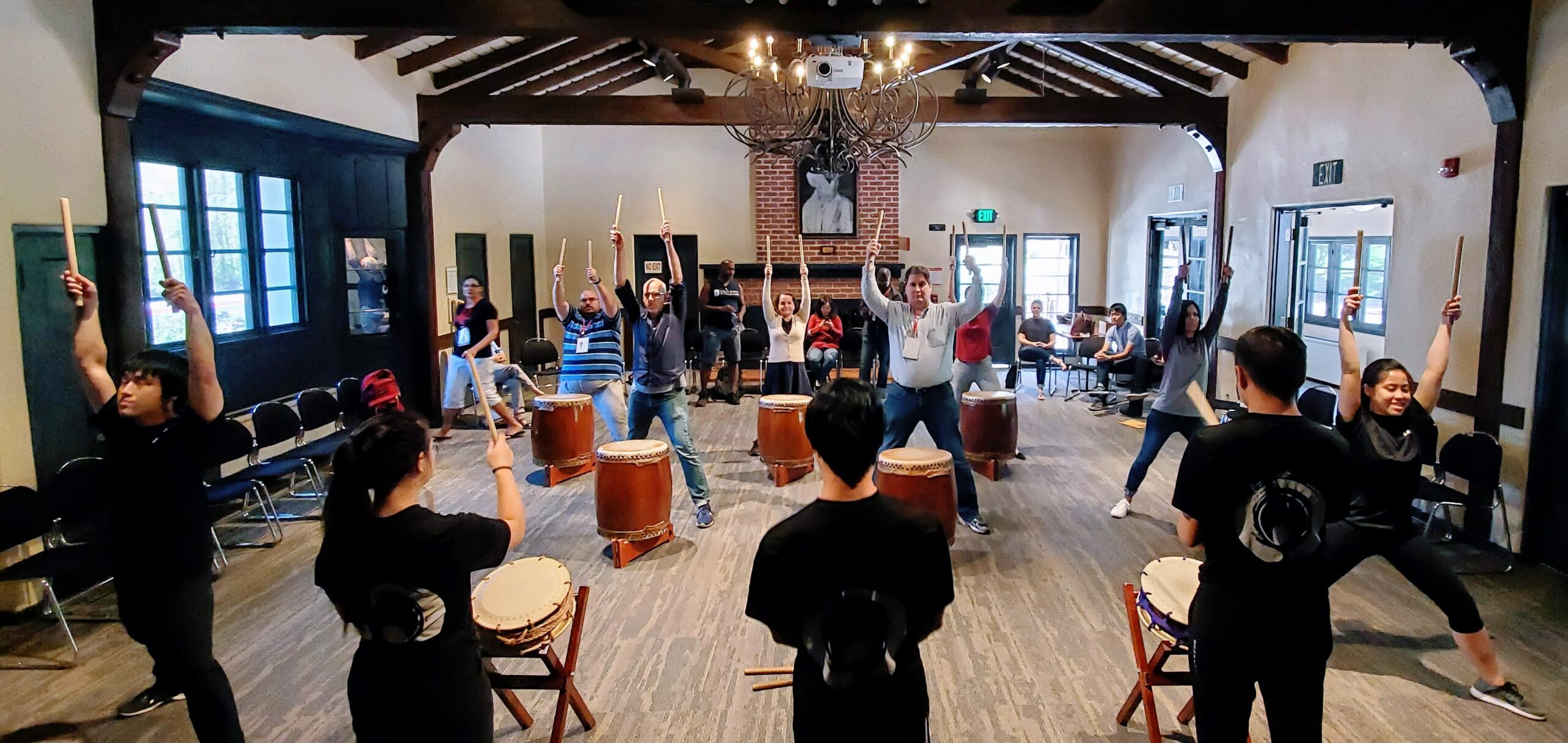Japan Studies Institute
The Japan Studies Institute (JSI) is a unique multidisciplinary professional development program designed to help faculty and administrators integrate Japanese studies into their institutions.
Apply by Feb. 28.

Transform your campus with Japan studies expertise.
JSI offers a unique environment for educators and administrators to deepen global studies capacity, intercultural learning and enhance your campus internationalization efforts. The program equips participants with the tools and knowledge to incorporate Japanese studies into the undergraduate curricula and co-curricular activities.
JSI is ideal for faculty and staff with little or no prior experience in Japanese studies. Through immersive learning and collaboration, participants gain practical insights into Japan’s history, culture, and modern society. By participating in JSI, individuals will acquire the expertise and resources needed to inspire student learning about Japan and global awareness in any academic discipline.
Who should participate?
- Faculty interested in expanding global and area studies in their teaching
- Administrators and staff seeking to support intercultural learning or international programs on campus
How will you benefit?
- Collaborative Learning: Engage in peer-to-peer learning with a diverse group of colleagues from across AASCU institutions.
- Specialized Resources: Access curated content, including Japanese studies materials tailored to help integrate Japan studies into your curriculum.
- Curriculum Development: Receive mentorship and support in developing courses, modules, or campus initiatives focused on Japanese studies.
- Networking: Connect with JSI alumni, Japanese scholars, industry experts, and diplomats to broaden your professional network and enhance your campus’ global connections.
What to Expect
Immersive residential experience.
Participants live and work together over two weeks at San Diego State University, fostering a vibrant residential community focused on collaborative learning. This intensive, hands-on format encourages a supportive exchange of ideas and builds lasting professional connections.
Interdisciplinary approach to Japanese studies.
Engage with Japanese culture, history, business, and social issues through seminars, lectures, and cultural activities. Participants gain a holistic understanding of Japan’s evolving role in global affairs, modern societal shifts, and cultural traditions, equipping them to incorporate these insights into diverse academic disciplines.
Integrated cultural and professional development.
Beyond structured sessions, the program includes off-campus excursions, evening gatherings, and cultural experiences that offer an immersive perspective on Japanese culture.
- Applications Open: Mid-November
- Applications Close: February 28
- Applicants Notified: End of March
- Institute Materials Provided: May 1, 2025 (includes handbook and other resources)
- Institute Start Date: June 2, 2025, in San Diego
- Institute End Date and Departure: June 15, 2025, from San Diego
To qualify for this program, applicants must meet the following requirements:
- Must be staff members capable of influencing undergraduate education, whether through teaching or providing academic support services relevant to undergraduate studies.
- Must have no prior formal training or professional experience in Japan studies.
- Should be able to demonstrate a genuine interest in learning more about Japan.
- Must be nominated/endorsed by a provost, vice president, dean, or department chair. The nomination can be made either directly or at the applicant’s request.
Documents listed below must be submitted by the February 28, 2025 deadline. The application package should include:
- A current, comprehensive CV or resume.
- A one-page letter/endorsement from a provost, vice president, dean, or department chair who is familiar with the applicant’s academic achievements and career trajectory.
- A typed, single-spaced, one-page statement outlining the potential benefits of the award to the applicant’s teaching and professional development, as well as to their institution and community. This statement should address:
- The applicant’s interest in expanding their knowledge of Japan.
- Plans for leveraging this experience to enhance undergraduate education at their institution.
- AASCU member institutions – Participation in this Institute is complimentary for AASCU members. Costs associated with program administration, academic material, and residence life are underwritten by a generous endowment from the Nippon Foundation.
- Non-AASCU member institutions – $895
Participants in the program are responsible for ancillary expenses related to travel to and from the program site, and all other personal and miscellaneous items.
Is my institution as AASCU member?


impact
28
Number of years AASCU has provided this professional development opportunity for its members.
200+
Number of Institutions that have participated in the Institute from across the US, the Bahamas and Canada.
500
Number of faculty and administrators that have been trained by the Institute.
2022 Fellows

| 2022 JSI Fellows | ||
|---|---|---|
| William Crawley | Dean, College of Education and Professional Studies | University of West Florida |
| Lucas Foster | Associate Professor, Mathematics | Northeastern State University |
| Sandra Gonsalves-Domond | Professor, Personality and Social Psychology | Ramapo College of New Jersey |
| Abdul Knowles | Director, Global Studies and Programmes | The University of the Bahamas |
| Michael Mays | Professor, English and Director, Hanford History Project | Washington State University |
| Newly Paul | Assistant Professor, Print/Digital Media | University of North Texas |
| Lokesh Shivakumaraiah | Executive Director, International Relations & Assistant to the Provost | Mississippi Valley State University |
| Binod Shrestha | Associate Professor, Studio Art | University of North Texas |
| Leslie Stewart | Associate Professor, Political Science | Delta State University (MS) |
| Robyn Wall | Assistant Professor, Art | Delta State University (MS) |
| Lingling Wang | Assistant Professor, International Business | Worcester State University (MA) |
| Marie Barnas | Associate Professor, Video and Film Production | Middle Tennessee State University |
Applications and endorsements for our 2025 JSI cohort are open.
Application Requirements
- A current, comprehensive CV or resume
- A statement outlining the potential benefits of the award to the applicant’s teaching and professional development, as well as to their institution and community
- An endorsement from a provost, vice president, dean, or department chair who is familiar with the applicant’s academic achievements and career trajectory
Important Dates
- Applications and endorsements are due Feb. 28, 2025
- The 2025 institute will take place June 2-15, 2025 in San Diego, CA
Interested in participating in this program? Let us know.
"*" indicates required fields



